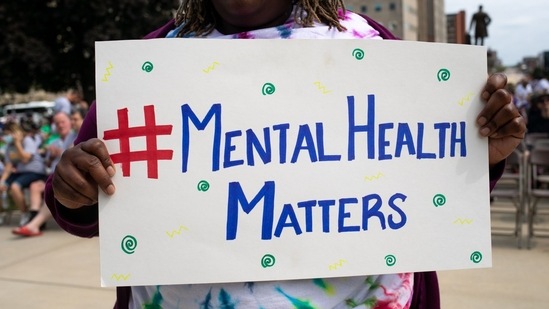Focus on women’s mental health, now
Depressive disorders are the leading cause of disability worldwide. Women are twice as likely to be diagnosed with a depressive disorder.
A recent report that more women attempt suicide in India than men is a reminder of the unaddressed issues of mental health that the former face. The pandemic may have made things worse, but these issues have not been taken seriously for a long time.

Around 150 million Indians suffer from mental health issues, according to the National Mental Health Survey. Depressive disorders are the leading cause of disability worldwide. Women are twice as likely to be diagnosed with a depressive disorder. Social causation pathways include violence, adverse life events, oppression, and patriarchal hegemony, with minimal avenues for sociocultural expression.
Just a dismal 0.08% of the health budget in India goes to mental health; very few organisations work in this sector and those that do are largely centred in urban areas. India lacks convergence between the health and social sectors. Women-headed households, family care burdens, powerlessness in the family, and social hierarchy, and lack of access to finance all contribute to fraying mental health among women. Leisure is an alien concept for most women, who often end up exhibiting symptoms of mental health disorders but are dismissed as being high-strung. The lack of mobility leads to women not being able to seek help in time.
Fortunately, there are some robust non-governmental organisations such as The Banyan based out of Chennai which deal with mental health issues holistically. The Banyan runs mental health and social care services for vulnerable communities in distress. This includes outreach services and mobilising civil society responses for the needs of homeless women with mental health issues, emergency care and recovery services. The Banyan’s flagship model – which has been taken to scale by the National Health Mission in 13 districts of Tamil Nadu – includes inclusive living options through a model called Home Again for persons without families to return to. This model was hailed by the World Health Organization as among the 24 best practices across the globe offering community-based long-term support. A service user who requested anonymity says, “The streets are no place for someone with a mental illness. Especially if you are a woman, you are subjected to some of the worst cruelties imaginable. Without services such as The Banyan, some of us would have just died. I am a human being now, independent, earning a salary and living with friends who have become family.”
Mrinalini Ravi, deputy director of partnerships at The Banyan, says, “There is no health without mental health. But mental health care cannot be delivered effectively without support from law enforcement, social welfare, education, women and child welfare, department of disability, housing, panchayati raj systems, and municipal bodies to name a few. Poverty and deprivation markers must be addressed if services are to support holistic rehabilitation. Biomedical care is only one piece of the puzzle. In addition, opportunities for experience sharing, peer support and counselling are extremely crucial in alleviating stigma.”
The success of our Accredited Social Health Activists during the pandemic received international attention. This network must be strengthened, and the workers trained to deal with mental health issues in rural areas. Models such as that of The Banyan can be replicated if a genuine effort is made to address mental health challenges with a focus on women. The post-pandemic period offers an opportunity to tackle these neglected issues.
lalita.panicker@hindustantimes.com
The views expressed are personal
Continue reading with HT Premium Subscription





